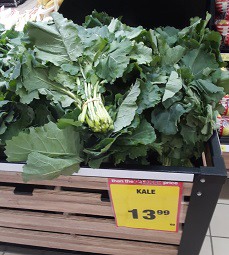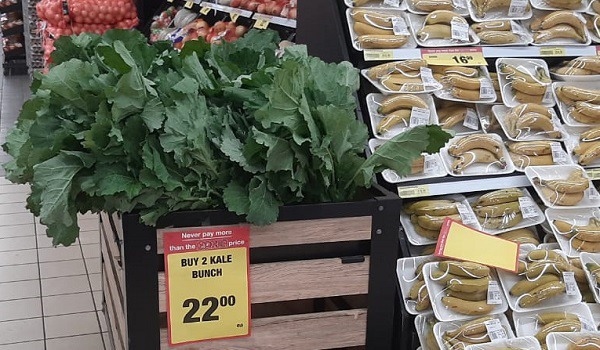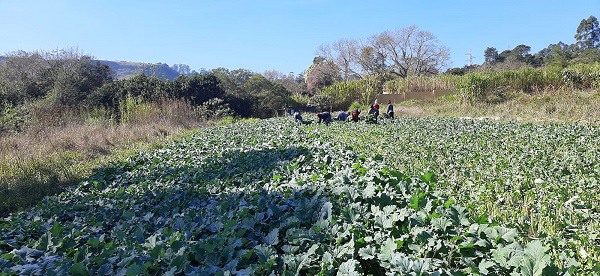When Covid hit, Alex Maseko remembered his lifelong passion for leafy vegetables. In the KwaZulu-Natal town of Peacevale he set to planting vegetables, trialling many but settling on what has become his speciality: kale.
Alongside kale, they grow English mustard, spinach, green beans, baby marrows, green peppers, chillies and okra. The greenbean harvest will start towards the end of the month, and chillies and okra are being planted now ahead of summer.
Over the course of three years Harvest Global has become the province’s biggest kale supplier and in the process Alex has been observing a marked change in consumer preference.
Kale winning over consumers “A lot of foreign nationals are big consumers of kale, especially plain kale, also called giant English rape. Somalis and Ethiopians are big consumers of kale, also people from Southern Africa, Mozambique, Malawi and Zimbabwe. They used to be the biggest consumers of plain kale here in KZN," he explains. “But now, if you look who are the biggest consumers of kale: South Africans have overtaken them as the biggest consumers of kale within South Africa.”
“A lot of foreign nationals are big consumers of kale, especially plain kale, also called giant English rape. Somalis and Ethiopians are big consumers of kale, also people from Southern Africa, Mozambique, Malawi and Zimbabwe. They used to be the biggest consumers of plain kale here in KZN," he explains. “But now, if you look who are the biggest consumers of kale: South Africans have overtaken them as the biggest consumers of kale within South Africa.”
He continues: "And when one breaks the consumption pattern down even more, one sees amaZulu people have become the biggest consumers of kale, followed by the local Basotho, then followed by the Basotho from Lesotho. There’s been a complete change in consumer preference regarding kale.”
He recounts a number of instances he has been pleasantly surprised by kale consumption in areas of Kwazulu-Natal where he didn’t think a market existed.
“People know the health benefits of kale. They tell me they mix kale with spinach and they say it’s brilliant, it’s seventh heaven. People love organic stuff, we go the organic route with chicken manure.”

He remarks that chomolia kale looks like plain kale, and is planted for its heat resistance in Limpopo and the eastern Cape, but in KwaZulu-Natal it’s not a preferred variety and they don’t plant it, not even during the hottest months of the year.
Harvest Global also grows Darkibor kale, “more for the mlungu [white] market to make smoothies."
“We’ve grown quite a lot of things. We had a section for madumbes, for watermelons, for cucumbers. This is where you start farming over time and you realise that over and above the passion, there are things that really don’t make money for you. Cabbage takes a long time to reach maturity but during that time I can’t use land for anything else, that’s why I decided to specialize in kale. It doesn’t give me headaches, and I don’t need to worry about pesticides and fungicides.”

Initially Harvest Global supplied informal buyers but logistics were difficult. Now they grow for a number of retailers, buyers who realise that farming is not an easy game and who won’t attempt to pay what he calls “slave wages” for the fruit of their labour.
“Kale is my Coca-Cola," Alex declares.










